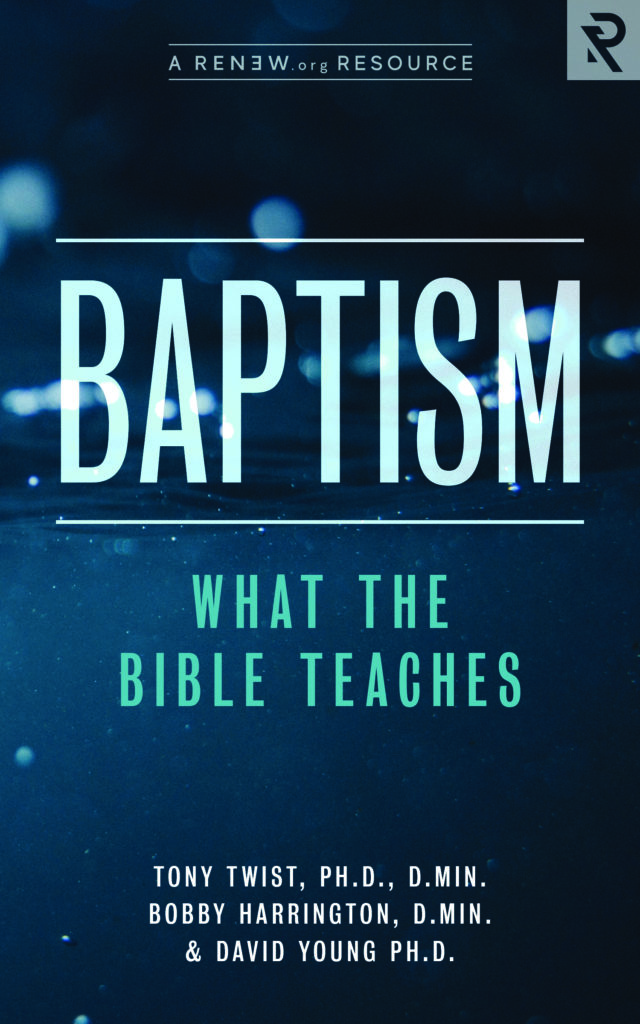
Church, I’m Afraid We Have an Anxiety Problem
As I mentioned in a previous article, I grew up with a dad afflicted with OCD. His anxiety became our family’s anxiety. There were myriad unwritten rules which often kept us on eggshells. Much of it was frustrating at the time. But it was perfect training for church ministry, since churches often have anxiety issues too. We’ll get to that soon.
What’s fascinating is that Dad’s OCD wasn’t consistent.
For example, he would make certain that no germs from the kitchen counter would touch his food. And yet, Dad regularly ate at McDonald’s, apparently unconcerned that a 16-year-old he’d never met was hurriedly making his food behind closed doors while not trusting his own family members to keep things clean.
Similarly, churches can become deeply anxious over things that are relatively insignificant, while untroubled by things that should be deeply concerning.
Think of the anxiety created by routine matters of church life, such as leadership transitions, different preaching styles, having to cut ineffective church programs, and implementing fresh initiatives to reach new and different people for the church.
Yet those same churches can remain apparently unconcerned that the baptistery has been drained for months, with no foreseeable need to fill it. Church anxiety can be very inconsistent—ignoring theologically significant issues but taking up arms because of offended preferences.
I contend that many of our church feuds, leadership burnout, and families leaving the church typically stem from anxiety, not theology.
Our churches often don’t know how to handle the anxiety that comes from disagreement—without trying to amplify that anxiety so that it becomes everybody else’s anxiety in order to keep things as they always have been. Yesterday was no less anxious than today, but everyone seems to want to keep things the way they were.
And guess who often has the most anxiety of all?
Ministers are perfect candidates for having lots of anxiety. We ministers love pleasing people and we hate to see people unhappy. And yet we’re also called to speak difficult messages which can be offensively taken and easily misinterpreted. Add to this that we’re preaching these messages to the people who voluntarily give to fund our paycheck. And if we were to ever be fired, we have our best friends, our home, our kids’ schools, our church family, and our employment all in the same circle—all of which would likely be uprooted. There’s a ton of pressure added if church giving is down or if an offended member is complaining about something.
I ran a survey in 2017 asking ministers in the Churches of Christ about their anxiety and depression levels. According to their responses, 52% experience anxiety directly related to ministry. Another 34% expressed feelings of significant to severe depression based upon their ministry.
After all, we have to deal with people in the most sensitive areas of their lives with biblical truth, all the while trying to keep people happy. Often, we feel responsible for people’s happiness, their anxiety or lack thereof, and for the overall calm of the church.
We ministers have a real propensity to “enmesh” ourselves into the emotional systems and processes of the people we minister to. In other words, we constantly gauge where they are emotionally, and in turn allow their anxiety to become ours. Enmeshment goes like this: I as a minister can only be okay if everyone else seems to be okay. For many ministers, how well they sleep hinges on whether people in the church are happy.
What’s the answer to all this co-dependence and enmeshment?
The fancy word for the solution is “self-differentiation.” It basically means that you and I aren’t the same person. As such, you can’t transfer your anxiety to me as if we’re the same person. And I can no longer see myself as the catalyst to make everybody else okay. I am not the ultimate fixer of other people. I shouldn’t anxiously rush in to rescue people from their anxiety; we are separate people responsible for our own emotions.
After all, as a minister, it is not possible for me to stay faithful to my task and at the same time guarantee that everyone else is going to be happy with me.
This doesn’t mean that I turn into a compassionless jerk; but it does mean that I experience wholeness in being faithful to the task I’ve been given without expecting everyone to be happy with me.
Ultimately, it comes down to the difference between needing to be well-liked by the congregation and truly loving the congregation well.
To experience self-differentiation is to be happy with 1 Corinthians 12:18: “But as it is, God arranged the members in the body, each one of them, as he chose.” As described in 1 Corinthians 12, the church is made up of very different people with diverse gifts—and that’s a good thing! We can learn to get along with people whose differences might initially give us anxiety.
A new direction can cause a lot of anxiety—for example, a new type of seating in the worship center, a new way of doing communion, a new way of doing worship.
Sometimes the church leadership is less committed to the new direction than they are to the emotional tranquility of the church member with the lowest anxiety threshold.
Sometimes it can only take one person—a reactive congregant who hasn’t even thought about it, prayed about it, studied it—to derail weeks and months of prayerful planning and implementing of a church’s vision. Anxious leadership rushes in to rescue the anxious church member.
Healthy church leaders, however, train their congregations to be healthy and whole.
They don’t let other people’s anxiety become their own. Rather than rushing in to the rescue, they recognize that it’s okay for people to live and stir in their anxiety for a time. People need to mature in their ability to handle anxiety. It’s good for people to become more anxiety tolerant. If in every anxious moment of your life, somebody came alongside and coddled you, you would never grow in your ability to tolerate anxiety.
Ultimately, it comes down to the difference between needing to be well-liked by the congregation and truly loving the congregation well.
Rescuing anxious people from their anxiety may feel like love. But love means wanting and working for the best for people, which includes their maturity. Mature leaders handle anxiety, not by rushing into the rescue, but by modeling clear-headed, warmhearted care for the maturity of their people. In turn, a mature church handles anxiety not by demanding conformity to their own comforts, but by learning to love each other, in their diversity, past the anxiety.









